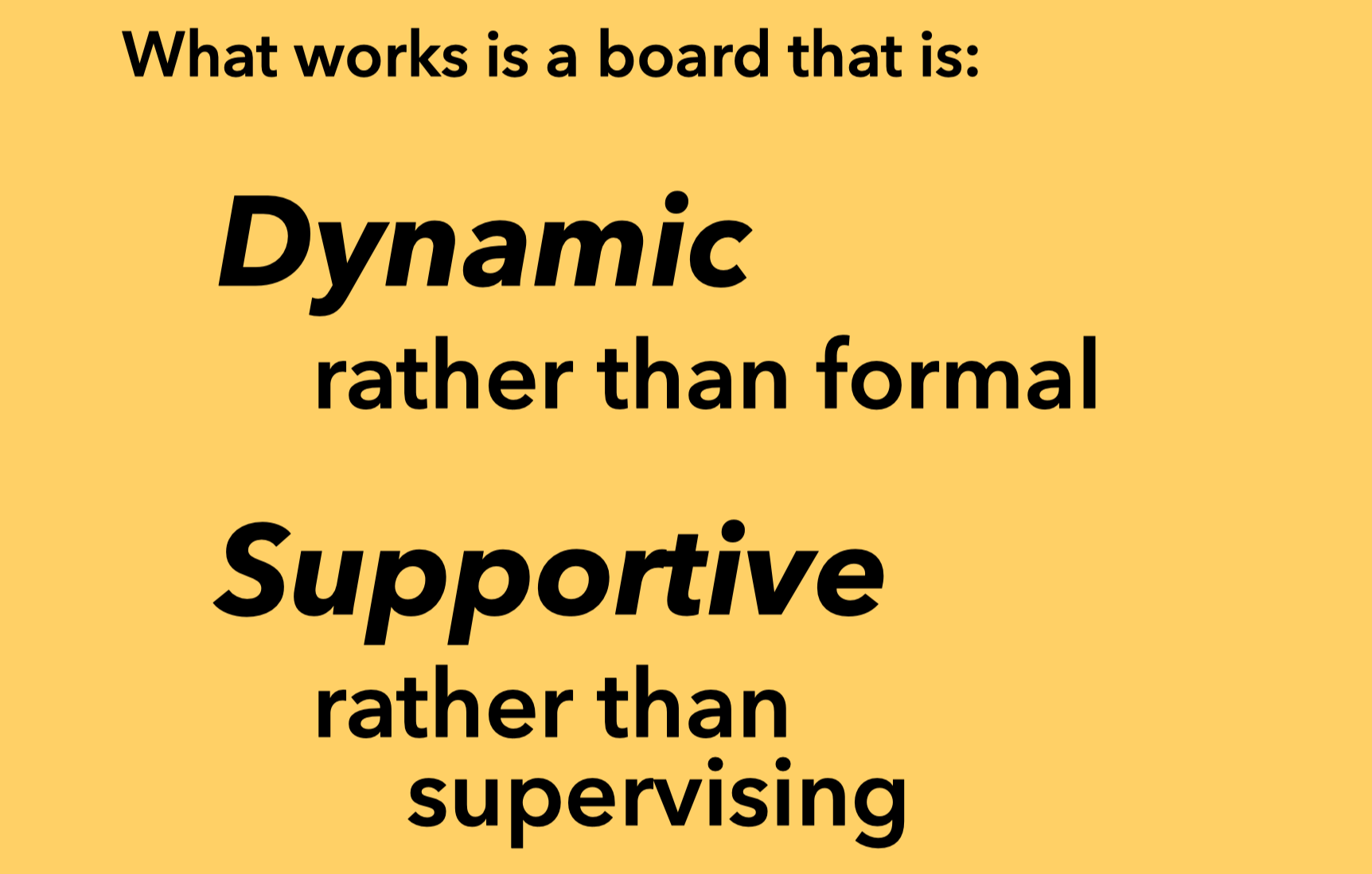Agency board culture
When hearing about a board of directors, people often think of a big oak table in an oak panelled room with deep pile carpets, or of a huge glass table in a glass-walled room on the top floor of a glass skyscraper. Around these tables sit grey men in expensive suits, plodding through a formal agenda of things in a dull way, voting, and then going for a long lunch.
That is the polar opposite of what we're aiming for.
The key difference to a board in an entrepreneur-driven company like a startup or agency, compared to a large corporation, is that the board isn't the boss of the CEO. The board is brought together by the CEO (and other owners, if there are any) to provide wise counsel, as a sounding board, and to provide some accountability.
In fast-moving businesses like agencies, a board meeting can provide a vital strategic sounding board without bogging the CEO down in formalities. It's more about taking the time to step back from the business and look at it from a different perspective.
In smaller agencies, the board may even just be the owners or top management, with no external directors — but that act of dedicating some time on a regular basis to thinking like a board about the business is transformative.
The board we're aiming for will feel dynamic rather than formal, supportive rather than supervising, and be about reviewing and improving rather than approving.

Matt Blumberg, a serial tech entrepreneur/CEO based in New York, says: